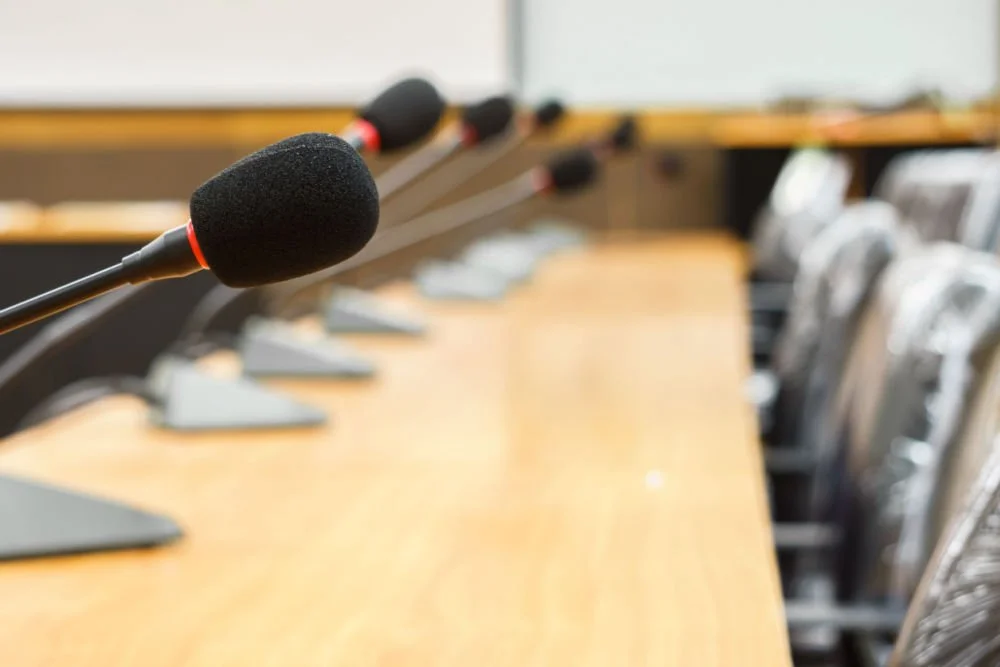Billionaire Backlash: A Gift To a Public High School Becomes a Case Study in Donor Overreach
/photo: Alex_Po/shutterstock
Editor's Note: This article was originally published on April 23, 2018.
Somehow, Stephen Schwarzman didn't get the memo.
For years now, there's been rising controversy about gifts by the super-wealthy that intrude too far into public spaces or impose too many demands on institutions in return for donor dollars. Mark Zuckerberg's $100 million gift to improve Newark Public Schools is the most famous case of a billionaire triggering a backlash through over-involvement in public education, long seen as one of the most democratic spheres of American life. But there have been plenty of other cases, too. Meanwhile, we've reported on a number of big gifts that turned into fiascos or scandals when wealthy donors attached too many strings in return for their money. A case in point: the debacle that occurred when a Wall Street master of the universe, Sandy Weill, and his wife Joan, unsuccessfully sought to give $20 million to a college in upstate New York with the condition that the school be renamed Joan Weill-Paul Smith’s College.
Apparently, Schwarzman, co-founder and CEO of the Blackstone Group, missed all these episodes and their cautionary lessons for mega-donors. How else to account for the overreach in his latest big gift—and the predictable backlash that followed?
Earlier this year, Schwarzman made headlines for his $25 million gift to his alma mater, Abington Senior High School in Pennsylvania. The gift was the largest donation to a single public high school from a private individual ever.
Then the other shoe dropped.
The donation was the result of talks between Schwarzman and Abington School District Superintendent Amy Sichel. At the time when Schwarzman announced the gift, he presented it to other public school district leaders as the way forward for cash-strapped schools. Private schools and universities score big gifts from alumni all the time, Schwarzman reasoned; all public school leaders needed to do was follow Sichel’s lead and start asking.
A few months later, the details of Schwarzman's stipulations emerged. The deal started to unravel when the school board called a meeting to change the school’s name to Abington Schwarzman High School, waiting to notify the public of the change under consideration until the day of the vote. It turned out there had been quite a few strings attached to the gift, including renaming parts of the campus after Schwarzman’s brothers, track coach and former teammates.
Related: What Should We Learn from a Big Gift to a Public High School?
Since the reveal of Schwarzman’s terms, the story has been widely reported, largely due to the pettiness and intrusiveness of the tycoon’s demands. These included a prominently displayed, specially commissioned portrait of Schwarzman, a demand that the school’s new name was to be displayed in six places, and semi-annual progress reports on the school’s computer literacy initiative.
The agreement also stipulated that the school provide all students with Chromebooks and require a coding or computer literacy class to graduate. The requirement represented a change in curriculum, but Sichel says the district had already decided to make the change.
However, beyond the controversy of the demands, the gift and the strings attached to it are a valuable, if extreme illustration of the issues that arise when private money funds a public service. The Schwarzman gift is actually just another case study of donor overreach in an era of mega-giving—one that underscores the kind of dilemmas that will likely become more common as wealthy individuals step in to shore up an overburdened, underfunded public sector.
No matter the good intentions that may drive today's new big-league philanthropy, at its core, the practice allows wealthy individuals to impose their vision on the world around them. The dynamic is particularly thorny when it comes to the funding of services paid for with public money, like education, with which taxpayers expect to have influence. At its worst, the dynamic could be considered undemocratic—the wealthy few imposing their will on the many. If philanthropists' work is unsuccessful, or if their ideas are unpopular, they can't be voted out of office or held accountable to public opinion.
Increasingly, billionaire donors and their foundations have found themselves under fire for following a top-down strategy that doesn’t adequately account for the opinions and expertise of people on the ground. It’s a criticism that funders seem to be hearing. The Gates Foundation has shifted its K-12 strategy toward an approach that emphasizes funding ideas that originate in school districts where they’ll be implemented. Likewise, the Chan Zuckerberg Initiative has been careful to avoid the appearance of top-down giving ever since Zuckerberg was lambasted for the reform effort in Newark, which many criticized as lacking local input.
The top-down dynamic is one familiar to many parents in the greater Philadelphia metro area, and Schwarzman’s donation isn’t the first time they’ve balked at big gifts. Back in 2015, the Philadelphia School Partnership offered the school district $35 million to encourage the approval of more charter schools. The organization is funded through donations. Though it purports to foster good schools, regardless of public or private status, it was seen as heavily favoring charter and parochial schools over traditional public ones.
Under the agreement, $25 million would support the new schools and $10 million would be allocated to offset the cost to the district of losing students to those schools. The problem was the $10 million budgeted about $2,000 in funding for every student who transferred to a charter school, when the district said the costs were closer to $7,000 a student.
At the time, the school district was slated to run an $80 million shortfall. Projects that pushed for more charter schools, which shift funding away from public school districts as students matriculate, were seen as taking much-needed cash away from the district. Residents came out en masse against the deal. The commission responsible for making the decision ultimately rejected the partnership’s offer.
A similar fate awaited many of Schwarzman’s demands. After the district’s agreement with Schwarzman became public, despite a stipulation of nondisclosure absent the businessman's approval, public outcry pushed the district to renegotiate. The district reached compromises on many of Schwarzman’s demands. The school will keep the $25 million gift and its old name.
Related:







































